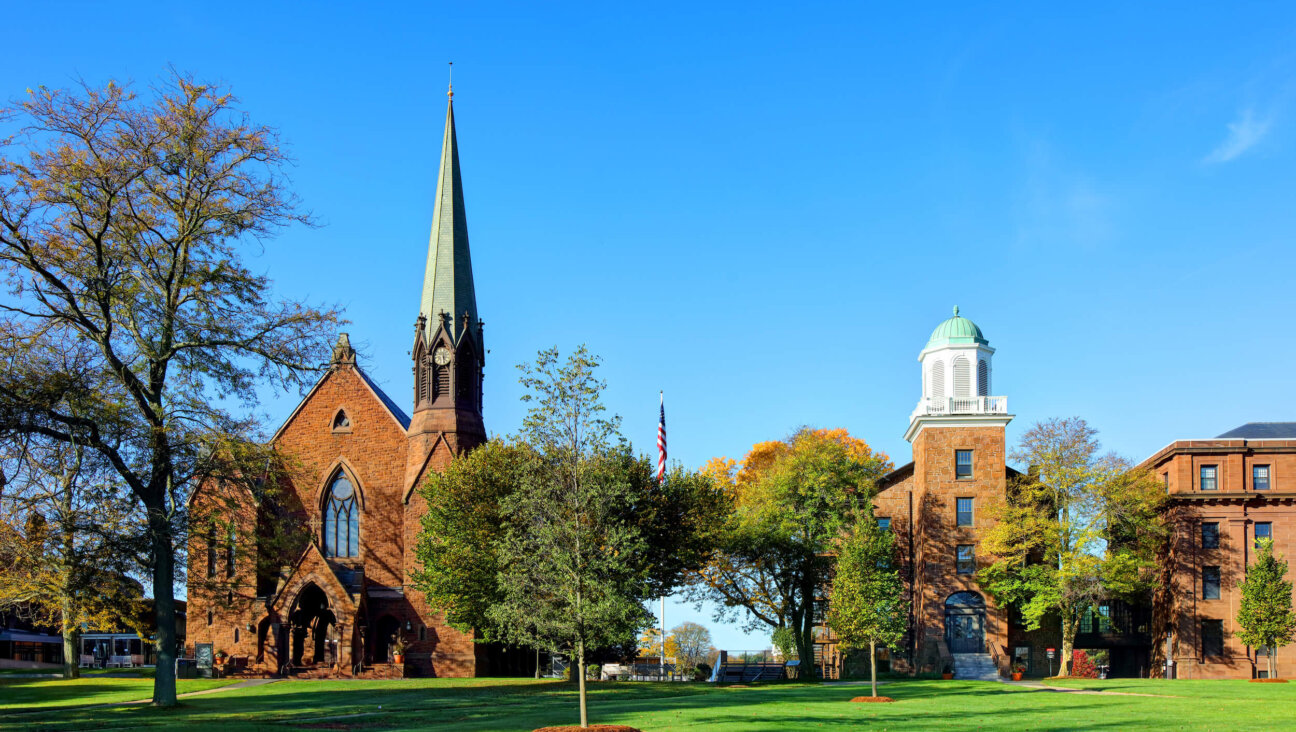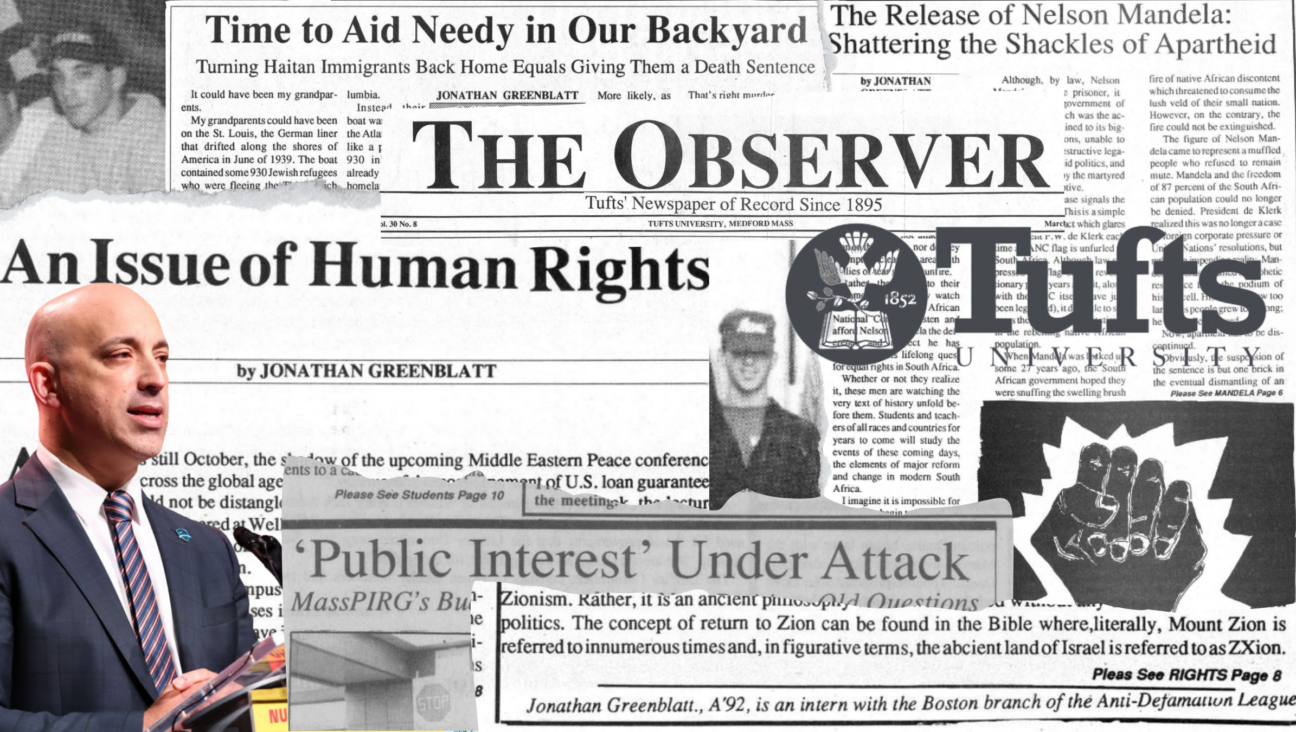Why Do Activists Connect Israel to Campus Rape? Intersectionality 101

If you care about Israel’s status on college campuses, you need to know about intersectionality.
Coined by black feminist scholar Kimberlé Crenshaw in 1989, “intersectionality” refers to the way social identities and forms of oppression overlap and intersect. For Crenshaw, it was impossible to understand her black identity without also understanding her female identity, and how the interlocking oppressions she experienced had both common roots and cumulative impact.
Intersectionality is now front and center in the way campus communities are engaging with Israel/Palestine, and linking it to other social issues.
For example, as my colleague Lizzie Crocker reported in The Daily Beast (where I am also a columnist), Columbia’s anti-sexual-assault group No Red Tape — co-founded by Emma Sulkowicz, of mattress-carrying fame — has, over the past year, begun to work with Students for Justice in Palestine. According to Crocker, NRT included a pro-Palestine speaker at a rally and tweeted pro-Palestine news clips.
Why? The most obvious reason is that some of the same people are involved in NRT and SJP. This is one reason mainstream anti-BDS campaigns have failed so miserably; the BDS supporters they demonize are the roommates and suite-mates of the Jewish students they’re trying to persuade.
But there is a deeper philosophical affinity as well. NRT supports victims of violence, some of whom are their own members. Many Palestinians living in Israel, the West Bank and Gaza are also victims of violence. (Whatever your view of the conflict, surely this fact is indisputable, as is the fact that many Israelis are victims of violence, too.) So, from an activist perspective, it makes sense to link the oppressions and be in solidarity with victims of each. Especially when, as Palestinian women are, they are victims of both.
Indeed, Crocker noted in her piece that at least one professor, at SUNY Plattsburgh, has recently lectured on the intersections of anti-woman and anti-Palestinian violence and the “systemic nature and root-causes of violence in both settings.”
This is Intersectionality 101, and whatever we make of this specific linkage, it is a concept that is here to stay.
In a way, intersectionality is a reality all of us inhabit. I am privileged by being white, by being male, and by being in the wealthiest quartile of Americans. Perhaps you could try to tease apart all of these strands of privilege, but my lived reality of them is that they overlap and intersect. Do I get to sit in a New York hotel lobby because I am white? Well-dressed? “Well-behaved”? All of the above, and more.
Awareness of intersectionality is, at this point, woven into the fabric of being a social justice activist, especially among young people. In a sense, this is not new. Jews marched with Dr. King because they understood that the same kinds of bigotry underlay both racism and anti-Semitism. But in a sense, it is new. Millennial Jews are more likely than any previous generation to have friends of different ethnicities, sexual orientations and religions. They are more likely to be people of color, queer-identified, or from multi-faith families. They are more likely to live at the intersections themselves, or have friends who do. Intersectionality is part of the zeitgeist.
You may agree or disagree with the application of intersectional analyses to the Israel/Palestine conflict. Maybe there are more differences than similarities. Maybe, in working in solidarity with SJP, No Red Tape has “politicized” its work around sexual assault. Crocker herself wrote that “conflating those issues under a larger umbrella of oppression waters them both down individually.”
But the “larger umbrella of oppression” is part and parcel of how many justice activists, particularly younger ones, understand their work. It’s how they understand what it means to be a feminist, an anti-occupation activist, a queer activist, or an anti-racism activist.
It is also how I understand political commitments. As a Jew, the lesson I take from centuries of oppression is not to oppress others. So, I may have more solidarity with oppressed Palestinians than with those Jews who oppress them. Just as I hope I have more solidarity with oppressed African Americans than I do with the white America that oppresses them. The same logic was also at work in the recent National Women’s Studies Association vote to support BDS and boycott Israeli academics. That vote was 653 to 86, not a close call. Why? In part, as Jewish feminist Janet Freedman has written, it was because the debate was dominated by one side.
But the vote was also a landslide because the NWSA, like NRT, sees itself as part of an intersectional social justice movement, and solidarity with Palestine — expressed in the form of BDS, which Palestinian leadership has articulated — is part of that movement. Being a Zionist in such circles is an anomaly, like being a black Republican or Latino Trump supporter. It’s possible in principle, but rare in practice.
That’s especially true now that the word “Zionist” has, as I’ve written before, been redefined by both left and right to mean something quite alien to its original meaning.
The trouble is, as Freedman noted, that BDS paints with a broad brush. “All Zionism is racism.” “There’s no difference between a settlement and an Israeli moshav.” “Palestinian leadership has never done anything wrong.” BDS supporters show biased, out-of-context video clips, and describe only one side of the vicious cycle. And less-informed, well-meaning liberals are outraged.
Unfortunately, the mainstream “pro-Israel” movement paints with exactly the same brush. “All BDS is anti-Semitism.” “Israeli leadership has never done anything wrong.” “Pro-Israel” supporters show biased, out-of-context video clips, and describe only one side of the vicious cycle. And less-informed, well-meaning conservatives are outraged.
The intersectional logic of which BDS is now a part, though, cannot be fought in this way. The conversation must be very different, and very detailed: in what ways violence against Palestinians is different from violence against African Americans, or migrants, or women; in what ways anti-Semitism actually does color debates about Israel; how BDS hurts, rather than helps, at least according to Israeli pro-peace activists.
Because of their nativist, ham-fisted approach, right-wing-dominated pro-Israel campus groups have already lost the first stage of this battle: Oppression against Palestinians is part of the intersectional understanding of oppression in general. The appeals to racism and nationalism on the part of Israel’s leaders reinforce this association.
So now those of us who are anti-occupation but pro-Israel, pro-Palestine but pro-two-states must do the harder work to complicate, problematize and de-couple these linkages. We must do so not only in the language of intersectionality, but by sincerely “getting it.” We must advocate for dialogue and reflection.
In other words, we must do exactly the opposite of what Sheldon Adelson’s millions are now set to do. Before they make it too late for us to do it.
Jay Michaelson is a contributing editor to the Forward.

I hope you appreciated this article. Before you go, I’d like to ask you to please support the Forward’s award-winning journalism this Passover.
In this age of misinformation, our work is needed like never before. We report on the news that matters most to American Jews, driven by truth, not ideology.
At a time when newsrooms are closing or cutting back, the Forward has removed its paywall. That means for the first time in our 126-year history, Forward journalism is free to everyone, everywhere. With an ongoing war, rising antisemitism, and a flood of disinformation that may affect the upcoming election, we believe that free and open access to Jewish journalism is imperative.
Readers like you make it all possible. Right now, we’re in the middle of our Passover Pledge Drive and we still need 300 people to step up and make a gift to sustain our trustworthy, independent journalism.
Make a gift of any size and become a Forward member today. You’ll support our mission to tell the American Jewish story fully and fairly.
— Rachel Fishman Feddersen, Publisher and CEO
Join our mission to tell the Jewish story fully and fairly.
Only 300 more gifts needed by April 30























